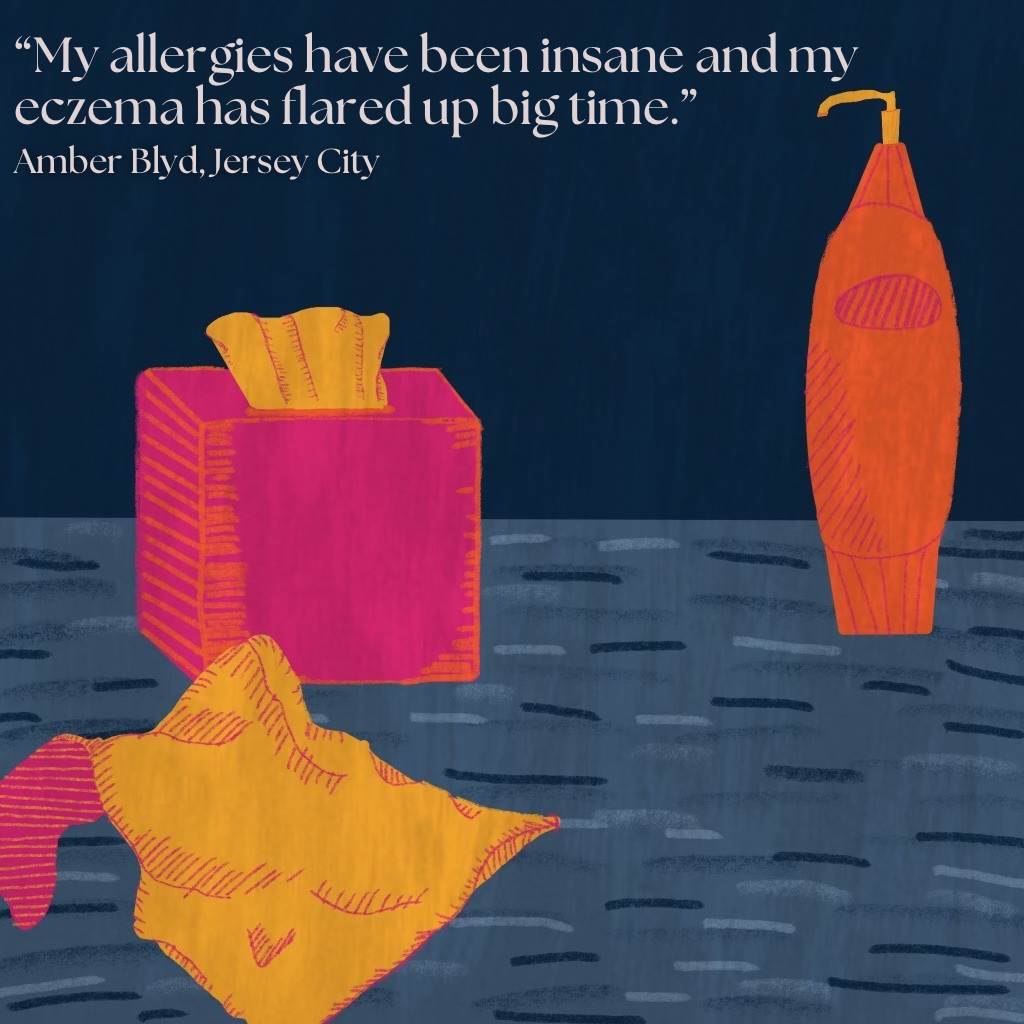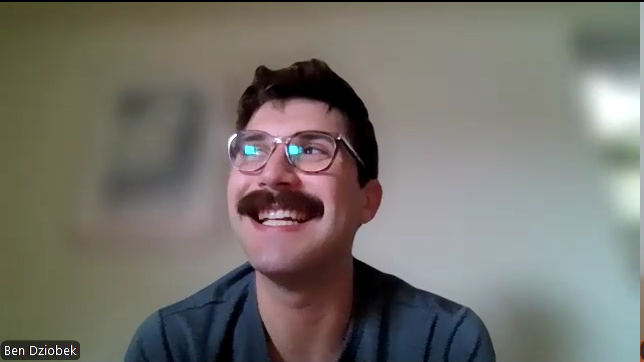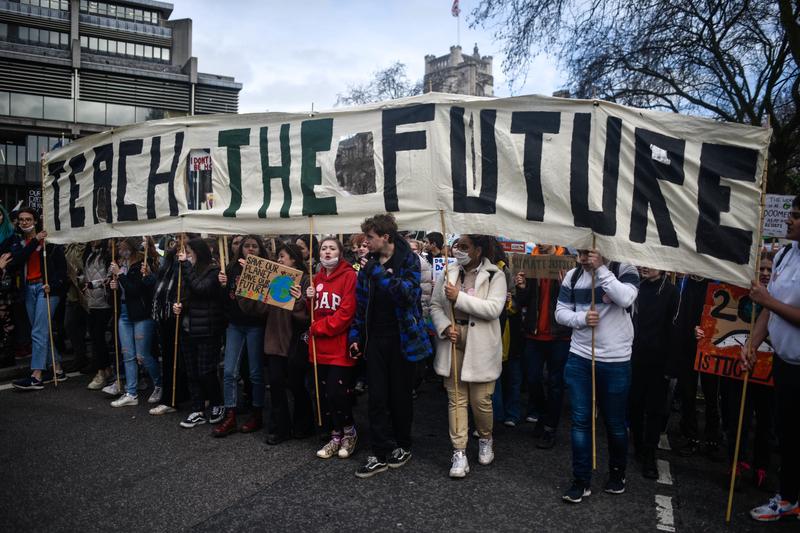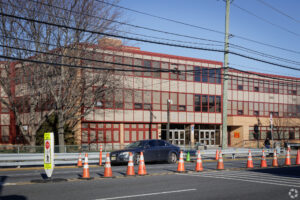Photo courtesy of WNYC.
With the presidential inauguration quickly approaching, New Jerseyans’ worries about President Trump’s stance on the climate crisis grow as droughts and wildfires became a concern across the state.
Though the wildfires began as early as July this year, Hudson County residents’ acknowledgement of how climate change and global warming has affected them can be felt beyond the summer. Here’s what some locals had to say:



Despite having cold weather for the majority of the year, New Jerseyans still find themselves living in one of the hottest years on Earth, according to the World Meteorological Organization. These effects are felt through multiple wildfires across North Jersey after not receiving substantial rainfall since August. This drought is considered to be the state’s worst in 22 years, according to a report by NJ.com.

Executive Director of the Climate Revolution Action Network Ben Dziobek, says New Jersey is a state to watch. “We’re in such a unique place, we’ve got like 150 miles of coastline, we’re one of the fastest warming states in the nation, one of the fastest warming states in the whole world,” he said.
Hotter and drier temperatures are the main problem that the Paris Climate Agreement—which is an agreement that encourages nations to take initiatives to avoid the earth reaching a temperature of 1.5 degrees celsius—tries to tackle. Withdrawing the United States from the Paris Climate Agreement was one of former President Trump’s most controversial decisions, amongst one hundred reversals and actions against preventative measures in the climate crisis.
“The Paris Climate Accord is simply the latest example of Washington entering into an agreement that disadvantages the United States to the exclusive benefit of other countries leaving American workers—who I love—and taxpayers to absorb the cost in terms of lost jobs, lower wages, shuttered factories and vastly diminished economic production,” Trump said in a statement from 2017.
The Trump administration also claimed that continuing in the agreement would result in 2.7 million lost jobs by 2025, citing research from the National Economic Research Associates.
At the time of Trump’s statement, the unemployment rate was at 4.3%, meaning about seven million Americans were unemployed. In October 2024, 4.1% or about 6.9 million Americans were unemployed. This is almost a million more than the unemployment rates in October 2023, which was 3.9% or 6.5 million Americans according to the Bureau of Labor Statistics. Despite this year’s increase in unemployment, about 580,000 jobs were lost from October 2023 to October 2024 and a loss of 80,000 jobs from the unemployment rate in 2017 to October 2024; not 2.7 million as Trump had previously stated.
More recently, President Trump claimed that the agreement was a “ripoff of the United States” and “a disaster” in a June 2024 debate against President Biden. He claimed that it would cost the United States “a trillion dollars.” So far, the United States has contributed $3 billion to the Green Climate Fund in 2016 during Obama’s presidency.
Trump also claims that countries like China, Russia and India would not have to contribute anything to the agreement. Russia has pledged $3 million, China and India are not found in the list of pledges made to the Green Climate Fund as of November 2024.
Although the incoming president’s stances on climate raises alarm to many, Dziobek says a Trump presidency should not stop climate activism.
“We’re in a pretty dire situation, for sure. I’m gonna preface already that that doesn’t mean we stop…This second Trump presidency is going to bring a lot of new challenges ahead…but we knew we would have challenges ahead,” he told Slice of Culture.
Dizobek also describes increased anxiety in younger generations like Millennials and Gen Z.
“I’ve had hundreds of young people reach out to me post-election. Genuinely hundreds. We built up an organization to receive some of that, and they’re scared,” he said.
Although this concern is “totally understandable,” it can be used as fuel to empower young people to get involved in climate legislation through networks like CRAN.
“We are in the legislature in every room that we can in the state, whether it be council meetings to represent new voices on issues,” Dziobek said.

For a more hands-on approach, North Bergen’s NB Earth Talks hosts clean-ups and tree plantings to get the Hudson County community involved. The organization’s co-founder, who goes by the name Sexy Sustainability online, is a North Bergen local and passionate about the environment.
“[We] help protect the environment and advocate for it, and give information to the community that maybe our public officials don’t usually give to our community about what’s going on in the area environmentally. [We also] give people ways to get involved in volunteer events,” she said.
Considering that North Bergen is home to a large community of people of color—who may already feel distressed by a nearing Trump presidency—providing empowerment and information and listening to them are crucial to get work done, according to Sexy Sustainability.
“It’s all about community effort, so the main focus is putting the power into the people’s hands. Back in the day, we would have more consistent meetings about what initiatives drive the people of our communities and then start creating programs based on that. At our volunteer events, we hear back about, ‘Oh we really want to see a clean-up happen, we really want to see a compost program at this location,’ and kind of help to give them the resources to do it themselves as well,” she said.
“Community effort and community engagement and having the space to go to ask questions and be able to get the resources to get to do their own thing is really what we prioritize so that people will feel comfortable and empowered.”
Though, for many, a Trump presidency may represent dark times or regression of progressive politics, Sexy Sustainability is able to find hope in communities who still work to move forward, no matter the emotion that drives that.
“I think people feel that something big is happening,” she said.
“When it comes to community engagement, I feel like people feel more inspired than ever to be with their communities and get out to protest and make a difference…it’s like, ‘Oh my God, I feel like there’s something big happening, I need to do something now.’ When I posted about Trump [coming into] office, saying we need to work outside of the government and start making differences for our own communities without government intervention, people who never have been involved or been interested in my political conversations online were coming out of the woodwork saying ‘I’ll be there, whatever you need, on the frontlines.’”




 Get your slice of culture from NJ
Get your slice of culture from NJ Hudson County born & raised
Hudson County born & raised The Locals + The Culture
The Locals + The Culture “Best Grassroots Journalism” @njspj + @njcivicinfo grantee
“Best Grassroots Journalism” @njspj + @njcivicinfo grantee



 Her
Her







 We stopped by Excel
We stopped by Excel










 E
E










